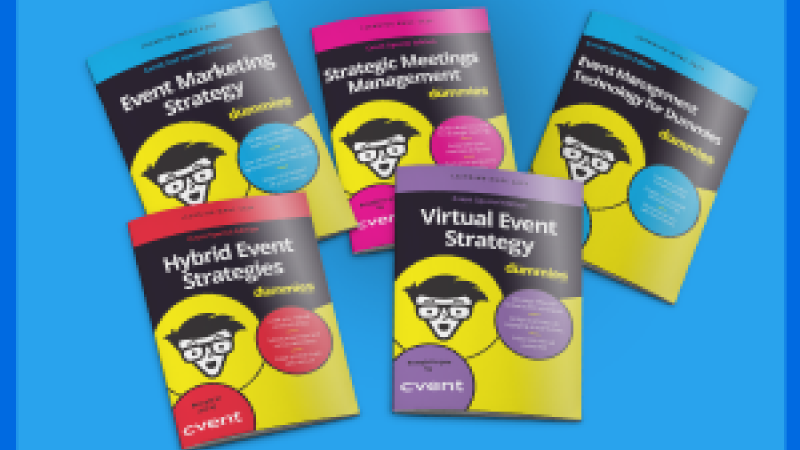The events industry is now much more resilient and mature in the face of contingencies than it was two years ago. And 2021, in particular, has been all about adapting a flexible approach when it comes to your event strategy and building a strong total events program. As we approach the year end, let’s recap the top seven lessons we learnt from the industry this year.
- Shifting Landscape - In 2020, we saw the event industry make a great leap towards digitising the events program, leading to a major shift in the format with the emergence of virtual events. 2021 saw our industry ditching the binary approach towards the event format (“should we go virtual or in-person?”). Instead, event organisers took advantage of the relaxation of restrictions across different regions and began experimenting with hybrid events. Now that they are familiar with the multiple benefits offered by hybrid, there is no doubt that this new event format is going to be the norm in the coming year.
- Engagement is the Key - The virtual event narrative no longer revolves around getting enough attendees. Organisations are focussing more on captivating their virtual attendees’ attention through digital engagement strategies. And with hybrid events coming into picture this year, we have seen content strategies evolving to accommodate the expectations of both virtual and in-person attendees. Events now need to become more personalised and be able to deliver memorable event experiences. Organisers should explore various engagement tactics, such as live polls, quizzes, contests, breakout/virtual coffee rooms, and other elements to indulge their audiences. Given the additional challenge of combating “webinar fatigue”, it’s important for brands to engage with the audience in a meaningful way and add experiential marketing to their event budget.
- Total Events Program - Event planners of today are spoilt for choice, with events available in various formats, such as virtual, hybrid or in-person. What this translates into for 2022 is more efficiencies in executing these event formats, lesser redundancies, utilising the event insights to not only build a better experience for attendees but to get a better event ROI. Of course, the need to revamp your marketing mix from time to time becomes more important now than ever. Businesses must channelise their resources towards a total events program for all organisation-wide events, which includes both internal and external events as well as all delivery formats.
- Event Budget - We saw event planners becoming wiser and more prudent with their event budgets as compared to their 2020 selves. Now it’s time to focus more on efficiency by leveraging event data and insights from the past year, while also taking the various event delivery formats into consideration. This will enable event planners to plan their event strategy by ascertaining the best ROI and business impact they want to reach in the coming year.
- Invest in tech - The pandemic has been a great catalyst for digitisation of events and adoption of event tech to create business impact. Needless to say, this is going to be the norm for 2022 as well. It is time to power up event production and deploy newer engagement strategies with the help of technology. It is necessary to have a flexible and agile tech stack that allows you to not just execute but also capture attendee touchpoints, irrespective of the event format. Tools that take care of all your technical needs empower your event vision and enable smooth execution and delivery.
- Safe sourcing- Though the return of in-person events in 2021 was slow, they did bring with them a rise in technology for sourcing safe venues and event diagramming. In this new normal, event organisers have to continue being mindful of onsite safety and compliance to local health regulations. Once in-person events return in full force, planners will need to adopt to a different mindset while thinking of event spaces and layout — keeping in mind the regulations of the state. Attendees will expect an environment with social distancing and health protocols in place, so it will be more important than ever to find the perfect venues that can deliver safe event experiences.
- Be ready for anything- Having a strong crisis management strategy is a non-negotiable as it takes care of the overall health of the business. Event insights play a huge role here as it gives us the visibility into the larger program and helps us be prepared during times of crisis. Measured processes and strategic solutions are key to the success of event programs in the long run.
Well, over to you all. Do you agree with our assessment of 2021? Let us know how your 2021 events went and how are you planning for 2022? Help us track the impact of the changing landscape of the meetings and events industry and predict what’s to come by taking this short survey.
Take the survey
More Reading
Event Experience
What is a Trade Show? The Ultimate Guide
Event Marketing





